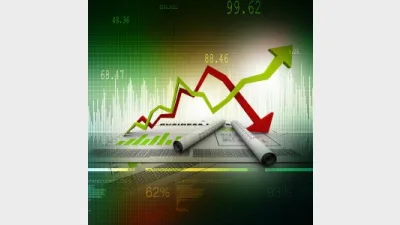Inflation to pause investors in 2017



Rising inflation is expected to be ‘the watch word’ for fixed income investors this year, for the first time in some years, according to BNY Mellon Investment Management’s report.
The study, which drew on the expertise from BNY Mellon’s investment houses, found that although political risk and volatility remained one of the biggest drivers of fixed income returns this year, it would be rising inflation which would cause investors to pause.
According to Newtown Investment Management’s head of fixed income, Paul Brain, one advantage of inflation would be a reduction of company debt.
“One advantage of inflation is that it reduces the value of a company’s underlying debt – potentially reducing the default risk for credit investors,” he said.
“Inflationary pressures are on the increase in both the US and major European markets such as Germany, driving upward pressure on bond yields but bringing potential benefits to credit markets.”
Insight Investment’s head of fixed income product management, April LaRusse, stressed that inflation in core Europe would also exacerbate disparity across European economies.
“Inflation may be the cause of some fixed income woes in Europe,” he said.
“This could create tensions over the ECB’s expansionary monetary policy with markets potentially questioning if the current level of interest rates is correct for all of Europe.”
However, Alcentra’s chief investment officer, Paul Hatfield, noted that in terms of investment opportunities Europe would see a positive year for its loan markets.
“The prospect of future interest rate hikes augurs well for the European loans market which is still very resilient,” he said.
“While Europe won’t benefit directly from any interest rate rises this year we expect the environment will be one of low defaults and we will be fairly defensively positioned, all of which means low prices should hold up fairly well.”
Recommended for you
Natixis Investment Managers has hired a distribution director to specifically focus on the firm’s work with research firms and consultants.
The use of total portfolio approaches by asset allocators is putting pressure on fund managers with outperformance being “no longer sufficient” when it comes to fund development.
With evergreen funds being used by financial advisers for their liquidity benefits, Harbourvest is forecasting they are set to grow by around 20 per cent a year to surpass US$1 trillion by 2029.
Total monthly ETF inflows declined by 28 per cent from highs in November with Vanguard’s $21bn Australian Shares ETF faring worst in outflows.











